The battery in your camper trailer is one of the most important pieces of equipment in order to have a successful camping trip. But what should you do if the battery isn't charging? Let's take a look at what to do below.
If your camper trailer battery isn't charging, do the following:
- Clean corroded battery terminals.
- Tighten loose battery cables.
- Check if the battery is bad.
- Replace converter cooling fan.
- Replace converter thermal sensor.
- Check diode readings for failure.
- Check circuit board for corrosion.
- Check for blown fuse(s).
- Check for a tripped breaker.
Dealing with a camper trailer battery that won't charge can be frustrating. However, by troubleshooting the potential causes of this issue, you can hopefully get your trailer battery charging again in no time. In this post, we will answer other frequently asked questions about trailer batteries, so keep reading!
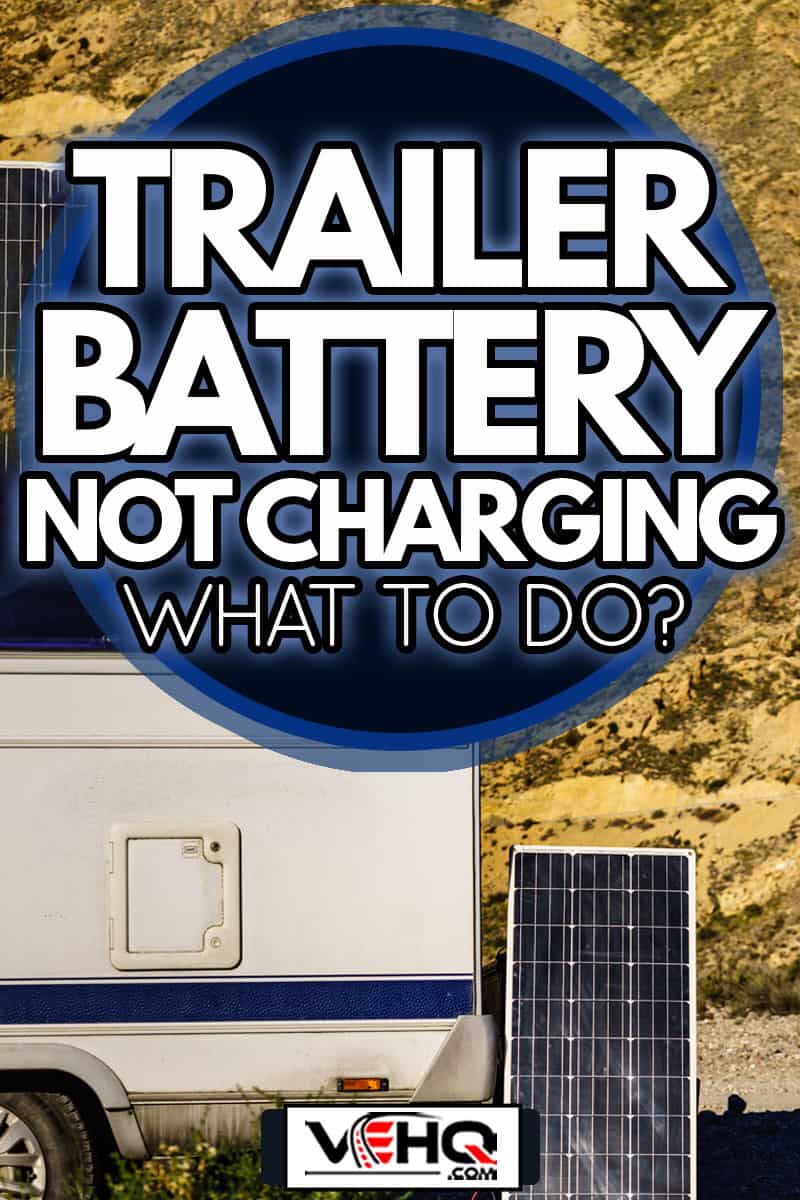
Troubleshooting A Trailer Battery That Isn't Charging
It's no fun when you get to your campsite and your camper trailer battery is dead because it can mean no lights, no water pump, and no way to cook dinner.
This is why it's important to know how to troubleshoot the issue when it arises. Below, we will walk you through pinpointing the culprit for why this is happening. Let's take a look!
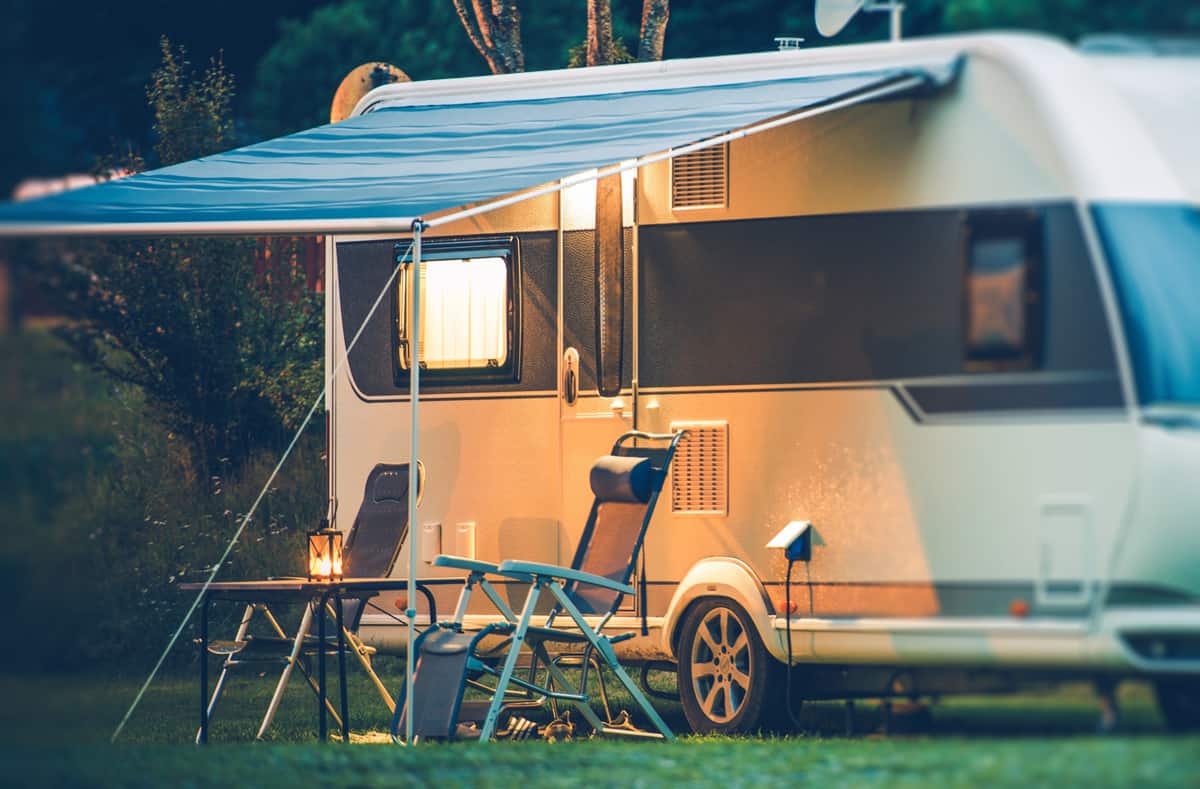
1. Clean Corroded Battery Terminals
If you find that your camper trailer battery is not charging, you should first check the terminals for corrosion.
If the terminals are corroded, it will prevent the electrical current from flowing properly which can cause the battery not to charge. Simply remove them and scrub them with a wire brush to clean the terminals.
2. Tighten Loose Battery Cables
The next thing you should check is the battery cables. If they are loose, it can also prevent the electrical current from flowing properly which can cause the battery not to charge. To fix this, tighten the battery cables.
3. Check If The Battery Is Dead
If you have an old battery, it may be time for a new one. RV batteries typically last between 3-6 years, so it may be time for a replacement if yours is older than that. Check your battery voltage and the date it was manufactured. If it is old and not holding a charge, it may be time for a replacement.
4. Replace Converter Cooling Fan
The converter cooling fan helps to keep the converter from overheating. However, if the fan fails, the converter can overheat and cause the battery to not charge.
To see if the converter cooling fan is the problem, check to see if the voltage of the battery is fine. If there isn't a voltage issue, the fan is likely bad. Replace the fan and see if this solves your issue.
5. Replace Converter Thermal Sensor
If replacing the cooling fan doesn't solve the issue, it could be the converter thermal sensor. The converter thermal sensor monitors the temperature of the converter.
If it is not working properly, the converter can overheat and cause the battery to not charge. To fix this, you will need to replace the converter thermal sensor.
6. Check Diode Readings For Failure
The diode in the converter converts AC power to DC power. Therefore, if it fails, the converter will not be able to convert AC power to DC power, and the battery will not charge.
To check if the diode has failed, check the readings to see if they are the same in both directions. If they are, then that is the source of your problem.
7. Check Circuit Board For Corrosion
The circuit board in the converter can become corroded over time. This can cause the converter to not work properly which can cause the battery to not charge. To fix this, you will need to replace the circuit board in the converter.
8. Check For Blown Fuse(s)
If there is a blown a fuse in the converter, it will prevent the electrical current from flowing properly which can cause the battery to not charge. Check the fuses in the converter and replace any that are blown.
9. Check For A Tripped Breaker
If there is a tripped breaker in the converter, it will prevent the electrical current from flowing properly which can cause the battery to not charge. Check the breakers in the converter and reset any that are tripped.
How Do I Know If My Trailer Battery Is Charging?
If you want to know if your trailer battery is charging, you can use a voltmeter to test the voltage of the battery. The voltage should be between 12.6 and 13.8 volts when the battery is charging. If it is below 12.6 volts, the battery is not charging.
If you suspect your converter is not working properly, you can use other methods to charge the battery. Let's take a look at a few other ways you can charge your trailer battery.
Click here to see this voltmeter on Amazon.
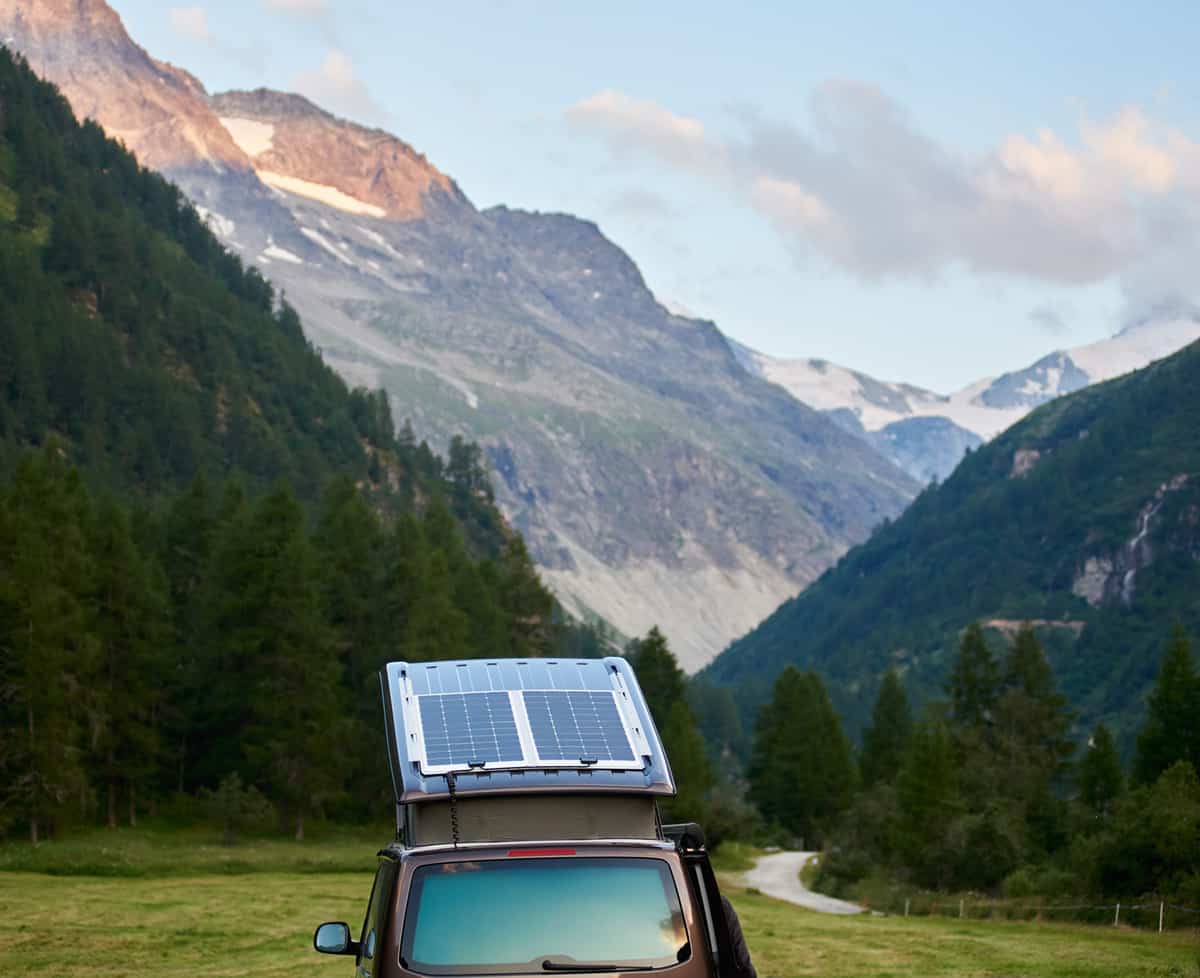
Solar Panel
If you happen to have a solar panel, you can use it to charge your trailer battery. Simply connect the solar panel to the battery and let it do its job. By adding solar panels to your trailer, you can make it more self-sufficient and reduce your reliance on hookups.
Vehicle Charger
If you have a vehicle with a working battery, you can use it to charge your trailer battery. Simply connect the positive and negative terminals of the two batteries together and let the charge flow. Just be sure not to overcharge the trailer battery, as this can damage it.
Generator
A generator is something that every RV owner should have. Not only is it great for providing power in an emergency but it can also be used to charge your trailer battery. Simply connect the generator to the battery and let it do its job.
As you can see, there are a few different ways that you can charge your trailer battery if your converter is not working properly. Using one of these methods can keep your trailer up and running even when the converter is not working.
Take a look at this video for a visual tutorial on checking your trailer battery:
How Do You Know If The RV Battery Is Bad?
There are a few different ways that you can tell if your RV battery is bad. One way is to use a voltmeter to test the voltage of the battery. If the voltage is below 12.6 volts, the battery is bad. Another way to tell if the battery is bad is by testing the specific gravity of the battery cells.
The battery is bad if the specific gravity is below 1.270-1.305. Finally, it is probably bad if the battery will not hold a charge. If you suspect your RV battery is bad, you should replace it.
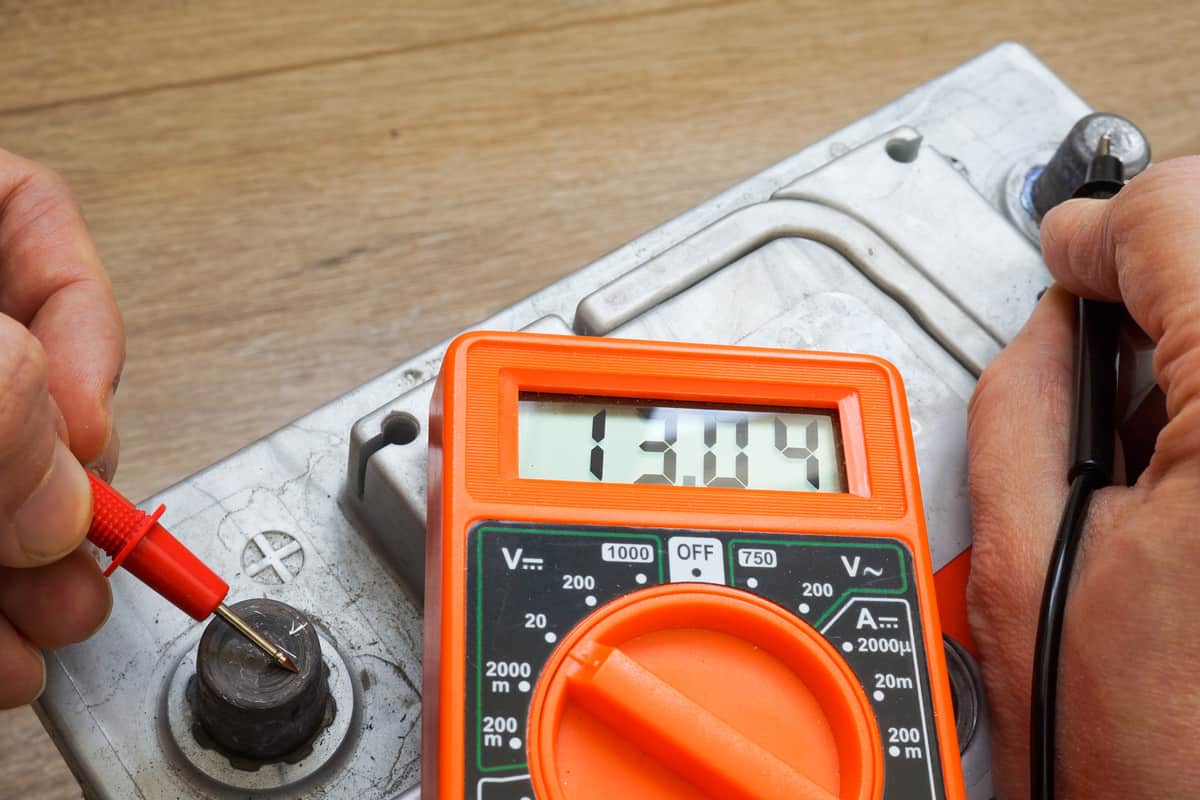
How Do You Properly Dispose Of An RV Battery?
Properly disposing of an RV battery is important for both the environment and your safety. The first step is to disconnect the battery from the RV.
Once the battery is disconnected, you can either take it to a recycling center or dispose of it at a hazardous waste facility. Be sure to follow the instructions of the recycling center or hazardous waste facility to ensure that you are disposing of the battery correctly.
Is It Bad To Leave Your RV Battery Plugged In All The Time?
Leaving your RV battery plugged in all the time is not necessarily bad, but it can shorten the life of the battery. This is because the cell's electrolyte in the battery will slowly degrade over time, and this process is accelerated when the battery is plugged in.
If you are going to be away from your RV for an extended period of time, it is best to disconnect the battery. This will prevent the battery from being overcharged or damaged.
Should I Remove My RV Battery In The Winter?
If you are not going to be using your RV in the winter, it is best to remove the battery. This will prevent the battery from being damaged by the cold weather.
Simply disconnect it from the RV and store it in a warm, dry place. Be sure to check on the battery periodically to make sure it is not being damaged by the cold.
If you do leave your battery in your RV during the winter, then the sulfuric acid in the battery will freeze, and this will damage the battery.
It is best to remove the battery from your RV during the winter to prevent any damage.
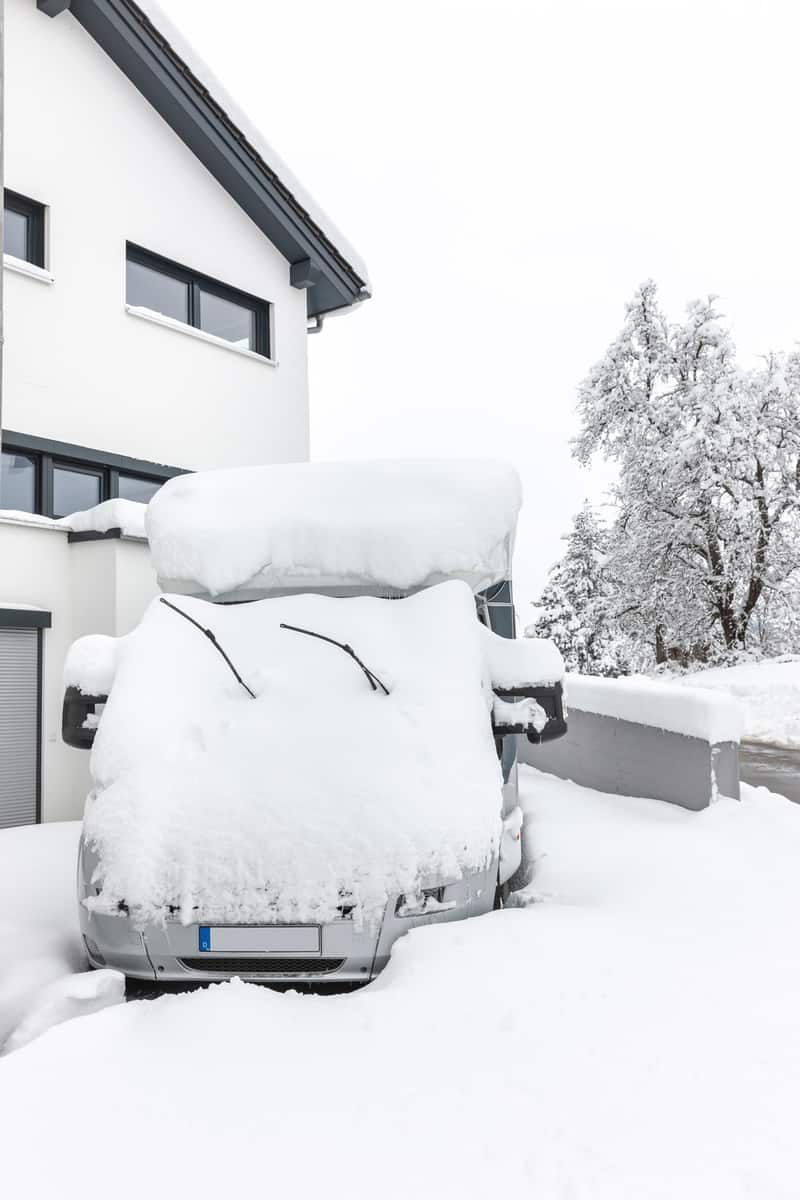
Why Isn't My RV Battery Charging While Driving?
There are several reasons why your RV battery might not be charging while driving. Some of the common reasons are due to a bad solenoid or bad wire connections.
The solenoid is what allows the electricity to flow from the tow vehicle to the RV. If the solenoid is bad, the electricity will not be able to flow, and the battery will not charge.
Another reason why the battery might not be charging is due to bad wire connections. The wires that connect the tow vehicle to the RV can become corroded over time.
This will prevent the electricity from flowing, and the battery will not charge. If you suspect that the wire connections are bad, you should have them checked by a qualified mechanic.
Final Thoughts
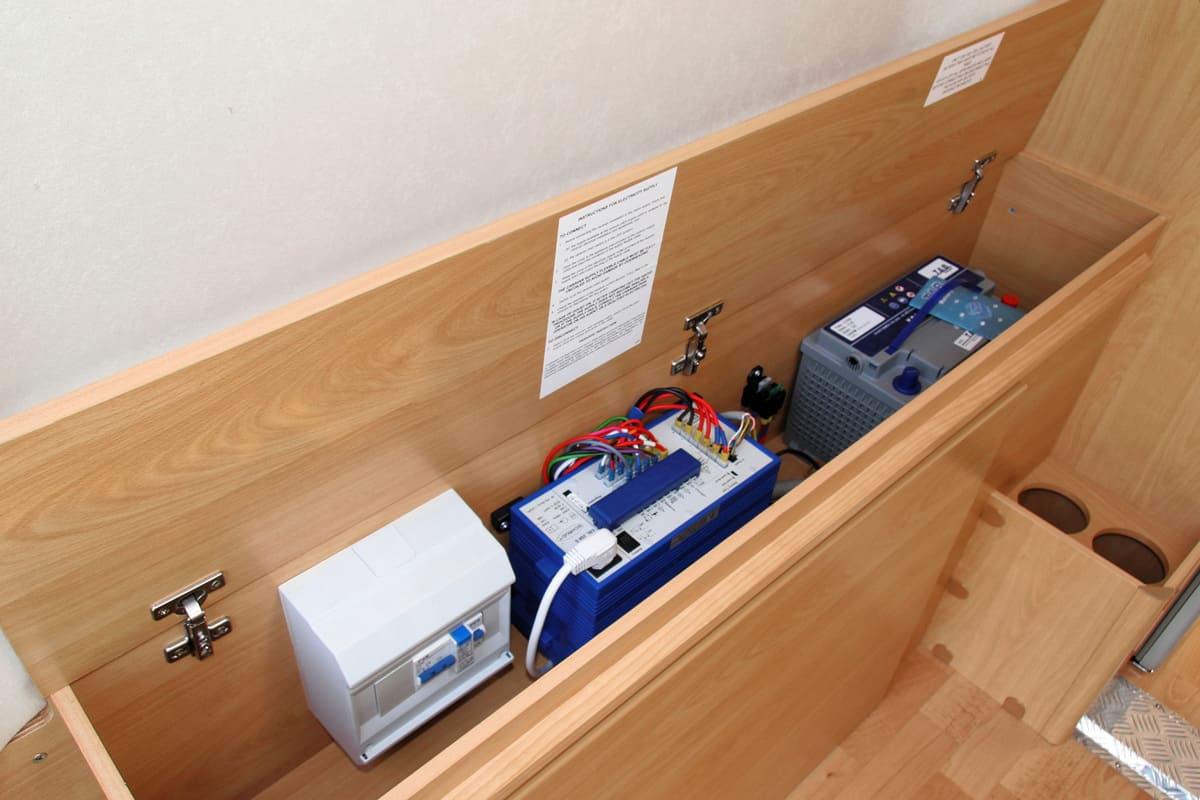
RV batteries are an important part of your RV, and it is important to know how to take care of them. If your battery isn't charging, check the parts mentioned in this article. If you still can't figure out the problem, call a qualified RV mechanic.
Like this article? Here are others you might find helpful:
How Long Will An RV Battery Last? [Inc. When Dry Camping]

